All talks take place on Thursdays at 13:00, unless otherwise stated.
Past Seminars
 29 June 2023
29 June 2023
Alan L. Yuille, Johns Hopkins University, USA
Approximate Analysis by Synthesis: Towards a Computational Theory of Vision
 15 June 2023
15 June 2023
Jessica Hamrick, DeepMind, London, UK
Understanding and Improving Model-Based Deep Reinforcement Learning
 1 June 2023
1 June 2023
Jesús Malo, University of Valencia, Spain
Venue: Staff Common Room (2D17), Priory Road Complex, Bristol
Low-Level Visual Psychophysics: A Bridge Between Psychologist and Deep Learning Engineers
 25 May 2023
25 May 2023
Murray Shanahan, Imperial College London, UK
Venue: Staff Common Room (2D17), Priory Road Complex, Bristol
Aspects of Large Language Models
 11 May 2023
11 May 2023
Anna Schapiro, University of Pennsylvania, USA
Learning Representations of Specifics and Generalities Over Time
 4 May 2023
4 May 2023
Alison Gopnik, University of California, Berkeley, USA
Imitation and Innovation in AI: What Four-year-olds Can Do and AI Can’t (Yet)
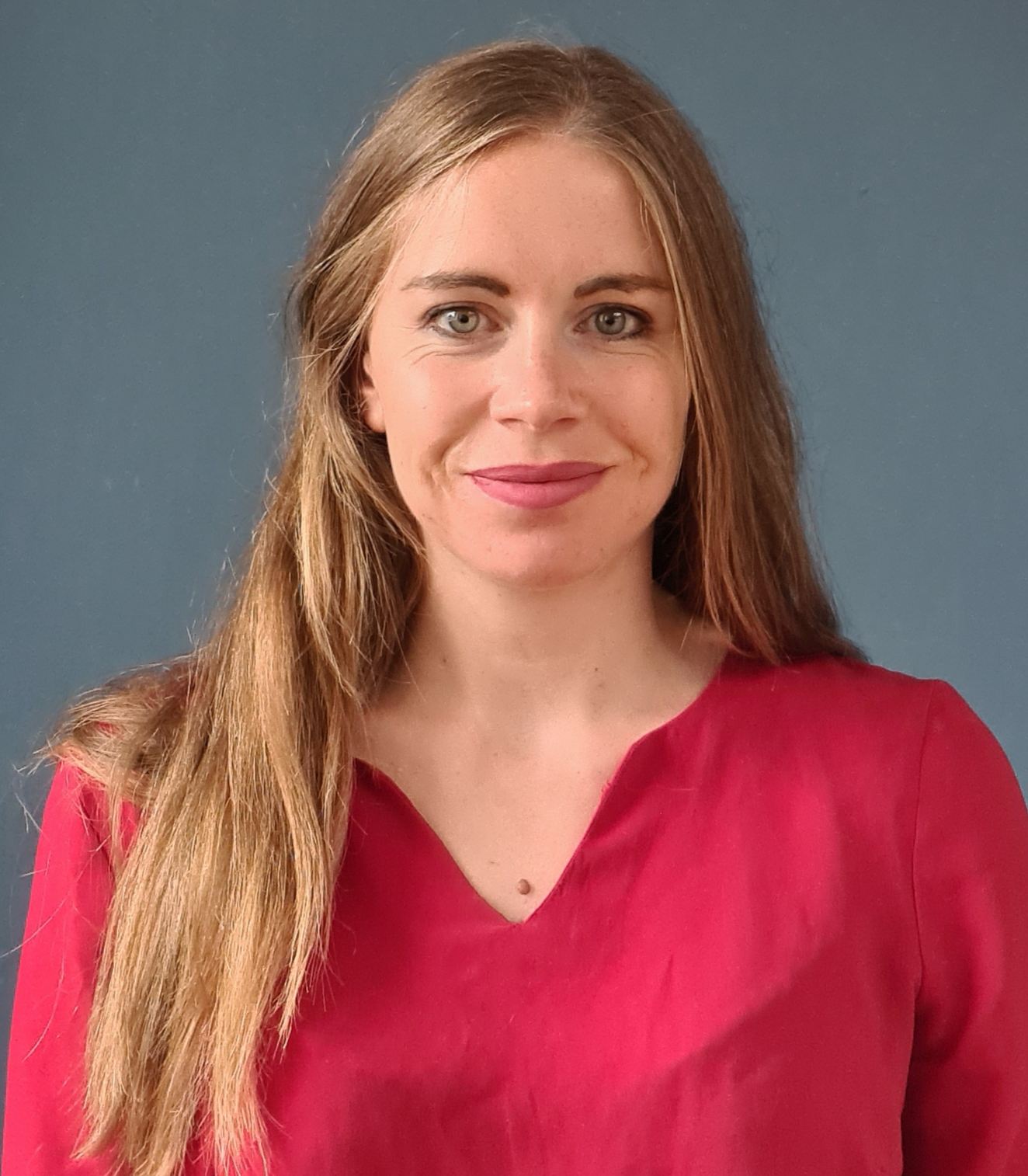 13 April 2023
13 April 2023
Dieuwke Hupkes, Fundamental AI Research, Paris, France
The (un?)importance of Generalisation in NLP
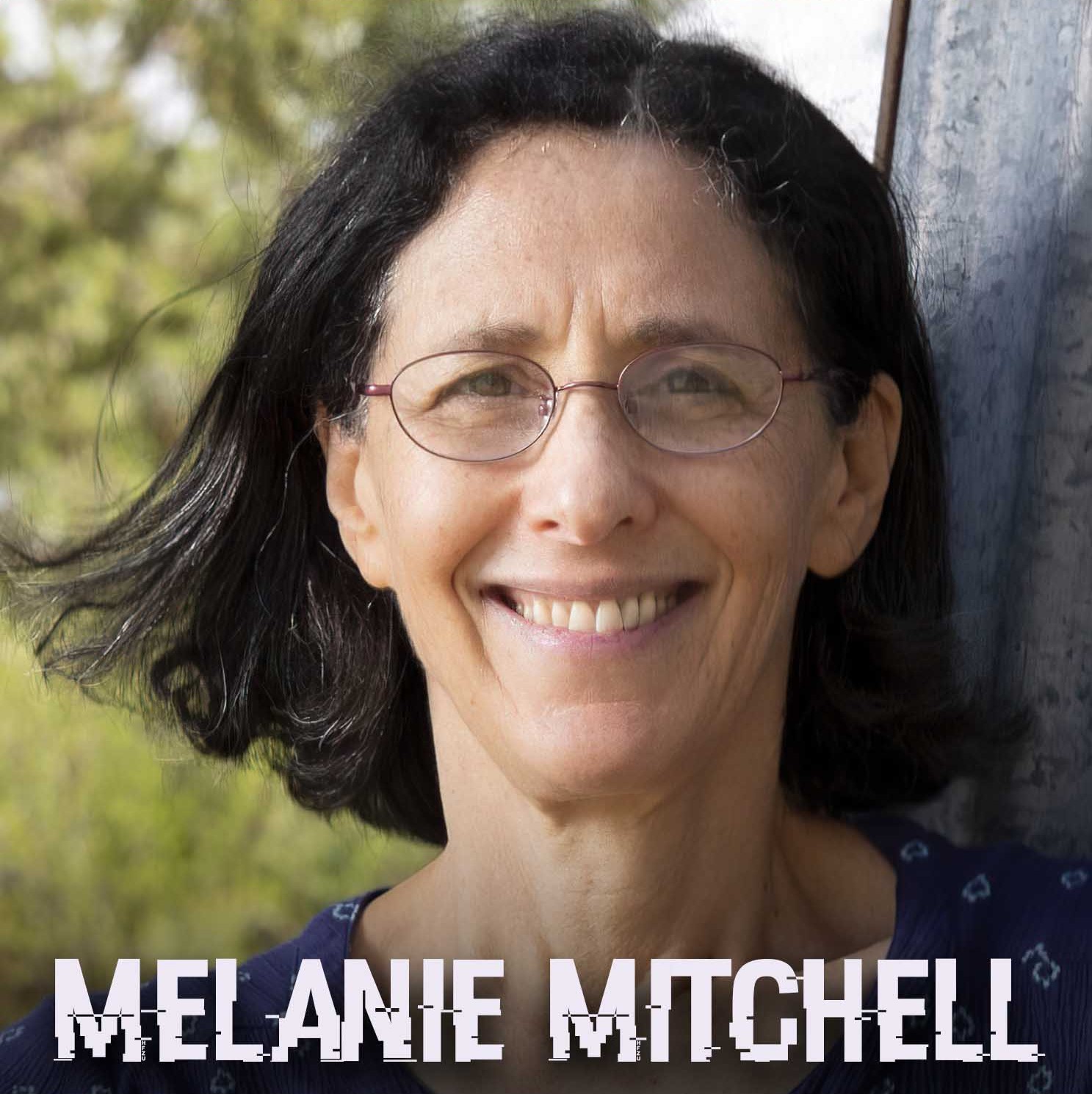
6 April 2023
Melanie Mitchell, Santa Fe Institute, New Mexico, USA
Abstraction and Analogy are the Keys to Robust AI
 9 March 2023
9 March 2023
S.P. Arun, Indian Institute of Science, Bangalore, India
Can We Improve Machine Vision Using Insights From Neuroscience?
 2 March 2023
2 March 2023
Robert Jacobs, University of Rochester, USA
Efficient Data Compression in Perception, Memory, and Attention
 23 February 2023
23 February 2023
Simon Kornblith, Google Brain, Toronto, Ontario, Canada
On Alignment Between Human and Neural Network Visual Representations
 2 February 2023
2 February 2023
Linda Smith, Indiana University, USA
Why ‘Self-Generated Learning’ May Be More Radical and Consequential than First Appears
 8 December 2022
8 December 2022
Samuel Gershman, Department of Psychology, Harvard University, USA
Using Video Games to Reverse Engineer Human Intelligence
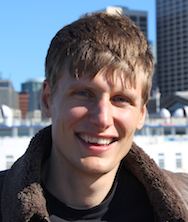 3 November 2022
3 November 2022
Stéphane Deny, Aalto University, Espoo, Finland
Modelling Mental Rotation in the Brain with Deep Learning
 27 October 2022
27 October 2022
Thomas Kipf, Google Brain, Amsterdam, The Netherlands
Slot Attention: Towards Object-Centric Perception
 20 October 2022
20 October 2022
Francesco Locatello, Amazon Web Services (AWS), Tubingen, Germany
Towards Causal Representation Learning
 13 October 2022
13 October 2022
Ken Nakayama, University of California, Berkeley, USA
A Data Format for Human Visual Object Recognition
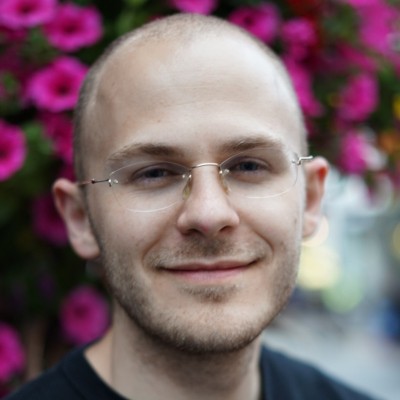 6 October 2022
6 October 2022
Rylan Schaeffer, Computer Science, Stanford University, California, USA
No Free Lunch from Deep Learning in Neuroscience: A Case Study through Models of the Entorhinal-Hippocampal Circuit
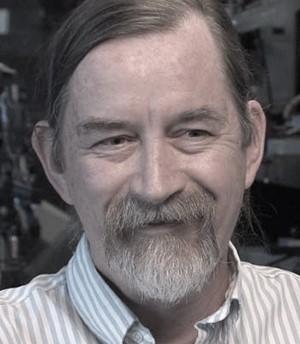 30 June 2022
30 June 2022
Garrison Cottrell, University of California, San Diego, USA
The Model 2.0:
An Anatomically-Inspired Model of the Primate Ventral Stream
 9 June 2022
9 June 2022
Zygmunt Pizlo, University of California-Irvine, USA
The Role of Symmetry in Veridical 3D Vision
 19 May 2022
19 May 2022
Tomas Griffiths,Departments of Psychology and Computer Science, Princeton University, USA
Similarities and Differences: Comparing Humans and Deep Networks
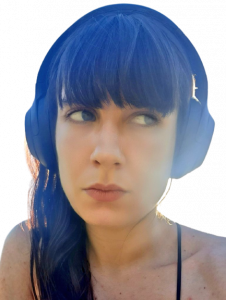 16 December 2021
16 December 2021
Olivia Guest, Donders Institute for Brain, Cognition and Behaviour and the School of Artificial Intelligence, Radboud University, The Netherlands
On Logical Inference over Brains, Behaviour, and Artificial Neural Networks

2 December 2021
Kenneth Stanley, OpenAI (San Francisco, USA)
Evolution, Intelligence, and Open-Endedness
 4 November 2021
4 November 2021
Katherine Hermann, Department of Psychology, Stanford University, USA
Shape Bias at a Glance: Comparing Human and Machine Vision on Equal Terms
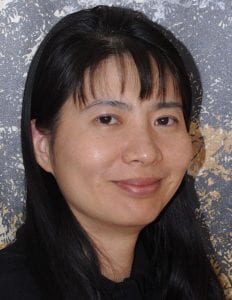 21 October 2021
21 October 2021
Yaoda Xu, Psychology Department, Yale University, USA
Limited Correspondence in Visual Representation between the Human Brain and Convolutional Neural Networks
 8 October 2021
8 October 2021
Kate Storrs, Justus Liebig University, Giessen, Germany
Understanding Mid-Level Vision through Unsupervised Learning
[Computational Neuroscience Unit/Mind and Machine joint Seminar]
 7 October 2021
7 October 2021
Nikolaus Kriegeskorte, Zukerman Institute, Columbia University, USA
Controversial Stimuli: Optimizing Experiments to Adjudicate Among Computational Hypotheses
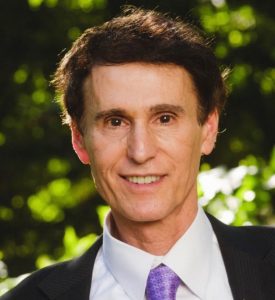
9 September 2021
Philip J. Kellman, UCLA Human Perception Lab. University of California, Los Angeles, USA
Visual Perception of Shape
 24 June 2021
24 June 2021
Michael Herzog, Head of lab of Psychophysics at the Brain Mind Institute (BMI) at École Polytechnique Fédérale de Lausanne (EPFL), Lausanne, Switzerland
About Fundamentals of Vision
 10 June 2021
10 June 2021
Rufin VanRullen, Research Director, CNRS, Centre de Recherche Cerveau et Cognition (CerCo), Toulouse, France
Do Deep Learning Latent Spaces Resemble Human Brain Representations?
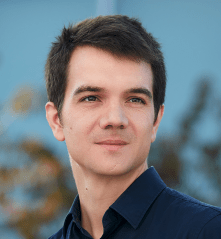 27 May 2021
27 May 2021
Jean-Rémi King, CNRS Researcher, Department of Cognitive Science of École Normale Supérieure, Paris, France
Brains vs A.I: The Case of Language

Roland W. Fleming, Kurt Koffka Professor of Experimental Psychology, Giessen University, Germany
Learning to See Stuff
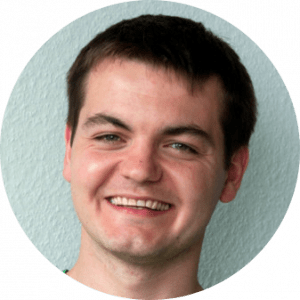 22 April 2021
22 April 2021
Adam Kortylewski, Postgraduate Researcher, Johns Hopkins University, Baltimore, USA
Robust Computer Vision through Approximate-Analysis-by-Synthesis with Compositional Generative Networks
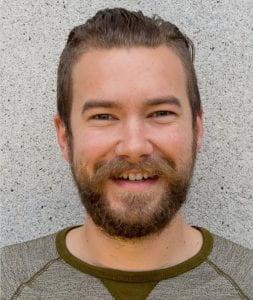 1st April 2021
1st April 2021
Dylan Paiton, Institute for Theoretical Physics, University of Tübingen, Germany
Towards Nonlinear Disentanglement in Natural Data with Temporal Sparse Coding
 18 March 2021
18 March 2021
Zhaoping Li, Head of Sensory and Sensorimotor Systems, Max Planck Institute for Biological Cybernetics, Germany
From V1SH to CPD : A New Framework for Understanding Vision
 11 March 2021
11 March 2021
Felix Hill, Senior Research Scientist at DeepMind, London, UK
A Developmental Pathway to Human-Like Intelligence in Machines
 3rd December 2020
3rd December 2020
Blake Richards, Learning in Neural Circuits Laboratory (Linc Lab), Mila and McGill University, Montreal, Canada
Learning from Unexpected Events in the Neocortical Microcircuit
 5 November 2020
5 November 2020
Dileep George, Co-Founder of Vicarious AI, San Francisco, USA
Triangulating General Intelligence, Cognition, and Cortical Microcircuits
 8 October 2020
8 October 2020
Felix Wichmann, Neural Information Processing, Tübingen, Germany
Object Recognition in Man and Machine
 17 September 2020
17 September 2020
Konrad Körding, University of Pennsylvania
An Optimization Based Way of Thinking About Brains
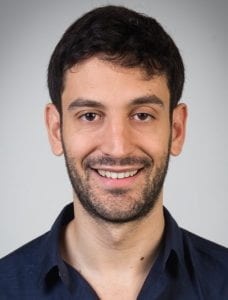 23 July 2020
23 July 2020
Brenden Lake, Human & Machine Learning Lab and CILVR Lab (New York, USA)
Compositional Generalization in Minds and Machines
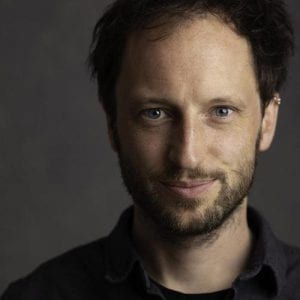 2nd July 2020
2nd July 2020
Tim Kietzmann, Donders Institute for Brain, Cognition and Behaviour (Radboud University, The Netherlands).
Deep Neural Networks as a Framework for Understanding the Dynamic Computations of the Human Visual System
 11 June 2020
11 June 2020
Thomas Serre, Cognitive, Linguistic & Psychological Sciences Department, Carney Institute for Brain Science, Brown University, USA
Feedforward and Feedback Processes in Visual Recognition
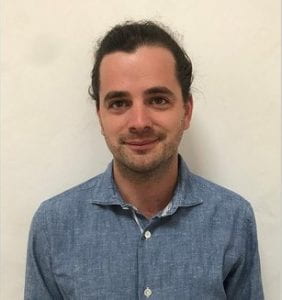 28 May 2020
28 May 2020
Adrien Doerig, Psychophysics Laboratory, Brain Mind Institute, Ecole Polytechnique Fédérale de Lausanne (EPFL), Switzerland
Crowding, Neural Networks and the Architecture of the Visual System
 14 May 2020
14 May 2020
Guillermo Puebla, School of Psychological Science, University of Bristol, UK
Learning Programs from Rewards with Relational Reinforcement Learning
4 June 2020 – Postponed
Michael Herzog, Psychophysics Laboratory, Brain Mind Institute, Ecole Polytechnique Fédérale de Lausanne (EPFL), Switzerland
23 April 2020 – Postponed
Emmanuel Dupoux, École des Hautes Etudes en Sciences Sociales (EHESS) and Facebook AI Research.
16 April 2020 – Postponed
James V Stones (University of Sheffield, UK)
Are Neurons Efficient?
2 April 2020 – Postponed
Peter Flach (Computer Science, University of Bristol, UK)
 12 March 2020
12 March 2020
Leonidas Doumas (School of Philosophy, Psychology and Language Sciences, Edinburgh, UK)
Cross-Domain Transfer in Humans and Machines
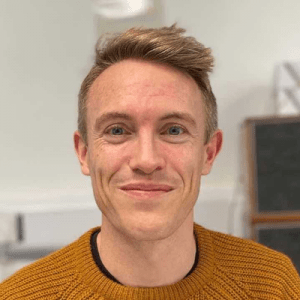 27 February 2020
27 February 2020
Cian O’Donnell (Computational and Theoretical Neuroscience, Computer Science, Bristol, UK)
Neural Circuit Redundancy, Stability, and Variability in Developmental Brain Disorders
 20 February 2020
20 February 2020
Jessica Hamrick (DeepMind, London, UK)
Mental Simulation, Imagination, and Model-Based Deep RL
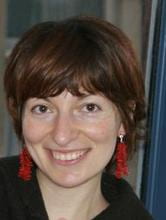 12 December 2019
12 December 2019
Nina Kazanina, School of Psychological Science, University of Bristol, UK
Language in the Mind and Machine
 14 November 2019
14 November 2019
Chris Summerfield | Human Information Processing Lab, Experimental Psychology, Oxford University, UK
Neoconnectionism: Deep Learning Models of Cognitive Function
24 October 2019
Charles Leek | Institute of Life and Human Sciences, School of Psychology, Liverpool, UK
What do Deep Neural Networks Tell us about Biological Vision?
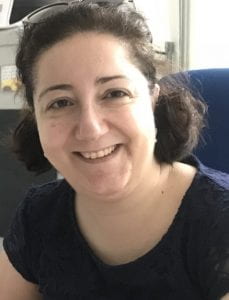 10 October 2019
10 October 2019
Dima Damen, Visual Information Lab, Computer Science, Bristol, UK
A Fine-grained Perspective onto Object Interactions
 3 October 2019
3 October 2019
Francis Song, DeepMind, London, UK
Deep Neural Networks Are Like The Brain, Except When They Aren’t
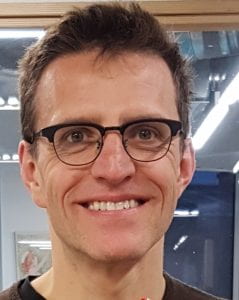 19 June 2019
19 June 2019
Marco Baroni, Research Scientist at Facebook Artificial Intelligence (FAIR) Paris, and Catalan Institution for Research and Advanced Studies (ICREA) Barcelona
The Emergence of a Grammatical Subsystem in Neural Language Models
[Joint work with: Yair Lakretz, Dieuwke Hupkes, Theo Desbordes, Germán Kruszewski and Stan Dehaene]
 6 June 2019
6 June 2019
Ella Gale | Research Associate | Psychological Science | Bristol, UK
Adding Structural Awareness to Deep Neural Networks Using Clusterflow Allows us to Defeat Adversarial Images and Solve Relational Problems
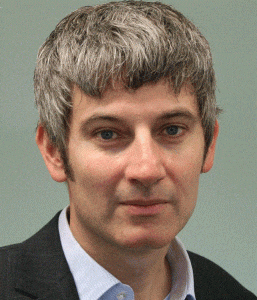 23 May 2019
23 May 2019
Bradley C. Love, Prof of Cognitive and Decision Sciences, Experimental Psychology, UCL, UK
Levels of Representation in a Deep Learning Model of Categorisation
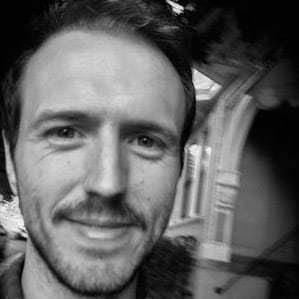 9 May 2019
9 May 2019
Andrew Saxe, Postdoctoral Research Associate, Experimental Psychology, Oxford University, UK
A Mathematical Theory of Semantic Development in Deep Neural Networks
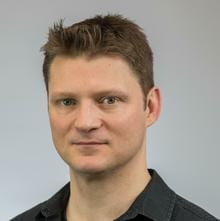 25 April 2019
25 April 2019
Nathan Lepora, Tactile Robotics Research Group at Bristol Robotics Laboratory, Department of Engineering Mathematics, University of Bristol, UK
Biomimetics and AI for Dexterous Robots
 28 March 2019
28 March 2019
Irina Higgins, Senior Research Scientist, Google DeepMind, London, UK
What is Disentangling and does Intelligence do it?
 14 March 2019
14 March 2019
Rui Ponte Costa, Computational Neuroscience and Machine Learning, Department of Computer Science, University of Bristol, UK
Powerful Learning via Cortical Microcircuits
 28 February 2019
28 February 2019
Conor Houghton, Computer Science, University of Bristol, UK
A Kozachenko-Leonenko Estimator for Mutual Information on Metric Spaces
 14 February 2019
14 February 2019
Ryan Blything, Research Associate, Psychological Science, Bristol, UK
Generalisation in Visual Object Recognition: A Comparison of Performance in Humans and Neural Networks
 31st January 2019
31st January 2019
Robert M. French, Research Director, CNRS, Université de Bourgogne, France
Understanding the Dynamics of Analogy-Making: New Analytical Techniques from Eye-Tracking
 17 January 2019
17 January 2019
Jeff Mitchell, Senior Research Associate, Psychological Science, University of Bristol, UK
Generalisation in Natural Language Processing
 6 December 2018
6 December 2018
Colin Davis | Psychological Science | University of Bristol, UK
What is the Code that Readers Use to Represent Printed Words?
 22 November 2018
22 November 2018
Hans Op de Beeck | Group leader of Human Brain Imaging and Rodent Visual Cognition | Laboratory of Biological Psychology | KU Leuven | Belgium
The Human Visual System is not a General Purpose Object Recognition Machine: Evidence from Neuroimaging and Artificial Neural Networks
 1st November 2018
1st November 2018
Ella Gale | Research Associate | Psychological Science | University of Bristol, UK
Selectivity Metrics can Overestimate the Selectivity of Units: A Case Study on AlexNet
 18 October 2018
18 October 2018
Peter Battaglia | Senior Research Scientist | Google DeepMind | London, UK
Object-Oriented Intelligence
 4 October 2018
4 October 2018
Roland Baddeley | Psychological Science | University of Bristol, UK
A Theory of How Deep Neural Networks Work Based on Symmetry and Non-commutative Bayesian Inference
 27 September 2018
27 September 2018
Alex Graves | Research Scientist | Google DeepMind | London, UK
Computing with Neural Networks
 5 July 2018
5 July 2018
Simon Stringer, Director | Theoretical Neuroscience and Artificial Intelligence Laboratory | Department of Experimental Psychology | University of Oxford, UK
Feature Binding within a Spiking Neural Network Model of the Primate Ventral Visual Pathway
 14 June 2018
14 June 2018
Ari Morcos | DeepMind | London, UK
Towards an Understanding of Representational Structure in Deep Neural Networks
 18 May 2018
18 May 2018
Simon Thorpe | Director of the CerCo UMR 5549 (CNRS-UT3), France
Grandmother Cells and Spiking Neural Networks
 16 May 2018
16 May 2018
John E. Hummel | University of Illinois, USA
Different Algorithms for Associative and Relational Learning